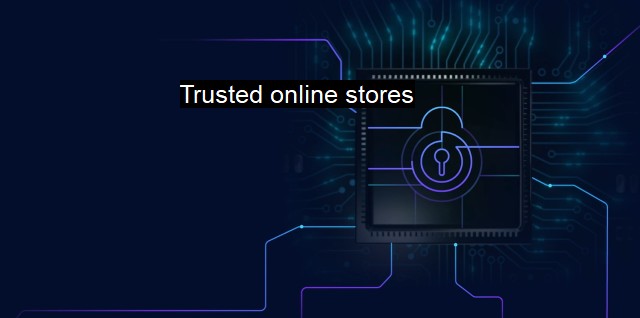What are Trusted online stores?
Trust and Cybersecurity: Ensuring Secure Transactions with Trusted Online Retailers and Antivirus Protection
Trusted online stores are essentially digital shopping platforms that demonstrate and maintain high levels of cybersecurity to protect their customers' information. The concept pertains to various sectors such as fashion, electronics, groceries and more. When we talk about "trusted" in the context of online stores, it relates directly to the practice of cybersecurity and the overall safety of transactions that take place.Customers expect their data to remain confidential and secure when they make a purchase online. They anticipate that the site will protect the sensitive data, which can be personal or financial, from cybersecurity threats. the internet is a vast space full of attacks aimed at unauthorized access, alteration, or leakage of data. Online stores, just like any other digital platform, are prone to cybersecurity threats. These threats may come in different forms such as phishing, malware, ransomware, or social engineering attacks.
Antivirus software plays a crucial role in safeguarding the digital infrastructure of online stores against these cyber threats. High-end security programs detect, prevent, and take action against malware and other threats, providing a more secure shopping environment for users.
In this context, a trusted online store is not merely a platform where transactions are successfully processed. It refers to an online store that places a premium on cybersecurity and ensures that customers' data does not land into the hands of hackers. A sign of such a store is updated and efficient antivirus technology. It maintains the integrity and confidentiality of users' data and makes sure that it is not manipulated or exposed.
One of the common attacks is through malware that can breach the system of the online store and gain access to authorized data. Some websites are also vulnerable to 'Man-in-the-Middle' (MitM) attacks where the attacker intercepts communication between two parties without their knowledge. Effective antivirus software, backed by strong firewalls and multiple layers of defense, are fundamental traits of online stores that can fend off these attacks and elevate their status to that of a trusted platform.
a trusted online store utilizes solid encryption methods for data security is another key element. Encryption converts the user's data into a code in order to prevent unauthorized access. Secure Sockets Layer (SSL) encryption is ubiquitously used in trusted online stores. It is a global security technology generally symbolized by a padlock icon in web browsers that encrypts information transferred between a browser and web server. It assures users that their sensitive data like credit card numbers or login details remain secure.
Online stores become trusted by implementing secure payment processes to safeguard financial data. Some stores use two-step verification process that requires users to complete an additional step apart from simply inputting the password. Such methods make it difficult for unauthorized persons to gain access to credit card details or other private information.
Protection of customer privacy and data is a serious obligation, not an option for any credible online store. Trusted stores also have explicit and comprehensive privacy policies that comply with data protection regulations.
a "trusted online store" is one that intrinsically integrates security measures and continuously upgrades its antivirus programs to safeguard the sensitive data of its customers. A robust cybersecurity culture and infrastructure is the bedrock to keep online store's credibility intact before a discerning customer base that increasingly values the assurance of data security.

Trusted online stores FAQs
What are some features of a trusted online store in terms of cybersecurity?
A trusted online store usually has a valid SSL certificate, offers secure payment options, has a clearly stated privacy policy, and uses reliable antivirus software to protect their website and customers' data.How can I identify a fake online store that might put my data at risk?
Fake online stores often have unrealistic discounts, unknown brands, obscure contact information, no SSL certificate or privacy policy, grammatical errors, poor website layout, and dubious reviews. So, be careful and do some research before making any purchases.Which online stores offer good antivirus software and protection?
Some popular online stores that offer reliable antivirus protection and cybersecurity solutions include Norton, McAfee, Kaspersky, Bitdefender, and Avast.What should I do if I suspect that an online store has compromised my data or information?
If you suspect that an online store has compromised your data, you should immediately contact the store's customer service or privacy team, change your account password, monitor your credit reports, and consider placing a fraud alert or credit freeze on your accounts. You can also report the incident to the FTC or your state attorney general's office.| | A | | | B | | | C | | | D | | | E | | | F | | | G | | | H | | | I | | | J | | | K | | | L | | | M | |
| | N | | | O | | | P | | | Q | | | R | | | S | | | T | | | U | | | V | | | W | | | X | | | Y | | | Z | |
| | 1 | | | 2 | | | 3 | | | 4 | | | 7 | | | 8 | | |||||||